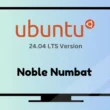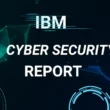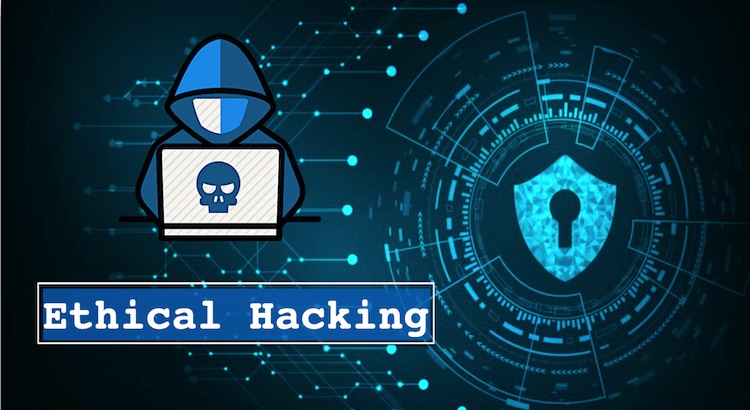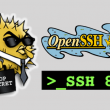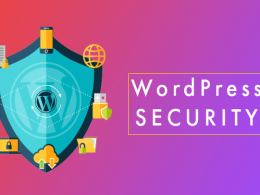In the world of hacking, ethical hackers are the good guys. While hacking often has a negative reputation, the role of an ethical hacker is essential to data security and protection for companies, businesses, and people in general.
You don’t need to have any previous knowledge of technical and digital security to get into ethical hacking. Whether you’re interested in pursuing ethical hacking as a career or just furthering your experience with a masters in cybersecurity, this article will provide valuable information about how to get started.
On your ethical hacking journey, there are several checkpoints along the path that will help you grow and succeed. These are both experience, and education related, such as taking a masters in cybersecurity, so you can identify the exact steps you need to take to become an ethical hacker.
What is Ethical Hacking?
The process of ethical hacking is essentially breaking into an IT system with the owner’s permission. The purpose of this is to identify any weaknesses or vulnerabilities in their current data security system. If an ethical hacker can break-in, then so can one that’s intention might be malicious. Ethical hacking also goes by the name penetration testing.
The main difference between ethical hackers and unethical hackers is consent. In the cybersecurity world, there are three different categories of hackers.
- White hat – White hat hackers are ethical hackers. They will often identify systems that look weak or vulnerable but always obtain the proper permissions before working on them.
- Gray hat- Gray hat hackers don’t necessarily have malicious intent but often use holes in cybersecurity systems for financial gains. For example, if they find an exploit, they will request payment from the owner for finding it. They likely don’t have permission from the owner to hack their system, but they also aren’t doing it to steal information or cause trouble.
- Black hat – Black hat hackers are the bad guys. They never have permission to hack into systems and do so for unethical reasons. Typically, they will steal or modify data illegally for their own gain. These are the hackers you see threatening to leak data unless the owner pays a ransom for it.
Ethical hacking is broken down into a few different methods, which you can learn about while doing a masters in cybersecurity. When you get started with ethical hacking, it’s a good idea to have a good grasp on each process to identify which is most beneficial for each job or situation. You may also choose to niche down and just focus on one of the following methods and specialize in it.
Penetration testing
Penetration testing is a method in which the hacker receives consent to seek out vulnerabilities within a client’s system and exploit them. They are given specific parameters within which to operate. They’re also required to document all their findings for the client to review. It also involves making recommendations on how to fix each vulnerability that they locate. As penetration testers have access to a lot of confidential client data, they will need to sign an NDA to prevent the hacker from leaking information.
Zero-day research
Zero-days refer to any newly discovered vulnerabilities within a piece of software. As the developers are unaware of the weakness, there is no update or patch available to fix it. During this time, hackers can exploit these vulnerabilities for their personal gain. An ethical hacker that focuses on zero-day research will work on locating the software’s weaknesses and reporting them. That will give the developers a chance to create a patch before unethical hackers have an opportunity to exploit them.
Bug bounty hunting
Bug bounty hunting is essentially what it sounds like: hunting down bugs and receiving a bounty for them. Many software developers, websites, and companies have a bug bounty program in which you can receive either recognition or compensation for letting them know about any bugs (vulnerabilities) within their current system.
Bug bounty hunting is a great place to start as a beginner ethical hacker because your resume doesn’t matter. You can take on un-paid bounties for experience and recognition to help build up your portfolio and earn money on paid bounties.
Security research
You can also use your knowledge and skill set as an ethical hacker, gained from a masters in cybersecurity, to specialize in security research. It involves developing resources and tools that organizations and companies can utilize for cybersecurity and other ethical hackers.
How can you learn ethical hacking?
When you decide to enter the world of ethical hacking, it is hard to know where to start or how to learn how to do it. Where do you get your knowledge from, and how do you know if it’s accurate? There is tons of information on ethical hacking out there, but the sheer volume makes learning a chaotic process. The best way you can learn ethical hacking is by obtaining a masters in cybersecurity.
You can trust that all the information you’re receiving on masters in cybersecurity is legitimate, and it’s presented in a structured way that optimizes your learning. On top of that, you get a chance to become an expert in all areas of cybersecurity and figure out which you are most passionate about. While you will likely choose to specialize in one area of ethical hacking, the training you have from a masters in cybersecurity will make you more adaptable and versatile.
On top of taking formal training and education through a masters in cybersecurity, here are a few other strategies you can use as a beginner to maximize your ethical hacking.
1. Identify your interests
As previously mentioned, there are multiple ethical hacking methods that you can specialize in once you have passed your masters in cybersecurity. Beyond that as well, you may have specific topics that interest you more than others. By knowing where your passions lie, you can focus on that area and become a specialist. Of course, it’s essential to be versatile and understand other methods as well but maintain your focus on the areas that interest you most.
2. Follow security professionals
Learn from the best by following security professionals on social media and reading their publications. You can find tons of helpful information as well as stay up to date on cybersecurity trends by looking at what professionals in the industry are posting about. Twitter is a popular platform for finding updates by using relevant hashtags. Set your notifications, so you are the first to know when a new post is up.
It will help you can stay ahead of the curve when it comes to trends in the industry. Reading blog posts is another great way to obtain information from those who have experience in another masters in cybersecurity course, for example, and increase your knowledge base.
3. Stay motivated
Ethical hacking is an industry that changes by the minute. With each new software creation, there is a new set of vulnerabilities for exploitation. Each time a company launches a new website, there can be weaknesses in their data security. As technology evolves, you must change with it to be a successful ethical hacker. Motivation is crucial and staying on top of your craft will allow you to be confident and successful. This is something you will learn while completing a masters in cybersecurity.
You must be proactive in following cybersecurity trends and upskilling continually. Remember why you’ve chosen to work in ethical hacking in the first place. Focus on being the best you can be and learning everything there is to know.
What do you need to know to be an Ethical Hacker?
To be successful and proficient at ethical hacking, there is a lot you will need to know. Here are some of the main areas you will need expertise in:
Operating systems
On your masters in cybersecurity course, you will learn that as an ethical hacker, you need to have comprehensive knowledge of every operating system. You never know what type of system you will encounter, and therefore knowing Mac, Linux, and Windows is essential. Depending on which route you go, you may also be working with mobile systems.
Programming
Knowing how to read code is the most essential piece of knowledge you will need as an ethical hacker, and you will quickly learn this in your masters in cybersecurity. Ideally, you should also know how to write code. The better you are at coding, the more proficient a hacker you will be. That is because you’ll understand the concepts of coding and be able to identify vulnerabilities in code easily. Many educators of the masters in cybersecurity course will reiterate this countless times.
Databases
Many systems have underlying databases, which you will be dealing with when you hack into them. Understanding these databases will allow you to make appropriate queries and offer relevant recommendations to clients.
Networking
Alongside your knowledge gained from your masters in cybersecurity, basic knowledge of networking is crucial as you’ll need to understand how different networks behave. Also, knowing about the OSI model is essential as it helps explain how network attacks and services work. Routing and switching knowledge will also help you troubleshoot, configure, and operate a routed and switched computer network.
What jobs can you get as an Ethical Hacker?
So, you know that you are interested in ethical hacking, and you know about what you need to learn, but what jobs can you get? Getting some formal training from a masters in cybersecurity will allow you to gain substantial knowledge of the industry and identify which areas you like and which you aren’t as interested in. That will help you to choose which career path you’d like to make your focus.
Many ethical hackers find success within the cybersecurity industry in jobs such as security engineers or cybersecurity analysts. The knowledge you’ll gain from a masters in cybersecurity will have a profound effect on you as an ethical hacker and will provide value to just about any cybersecurity position. That said, if you want to focus solely on ethically hacking the jobs you’ll ideally want include:
Penetration tester
Penetration testing is the most common career choice for ethical hacking. It revolves around doing vulnerability assessment, understanding systems, and figuring out how to exploit them. Almost as important as finding and exploiting vulnerabilities is reporting those properly to the client.
Documentation needs to be structured, thorough, and comprehension – something you should be well versed at though if you take a masters in cybersecurity. It also needs to include recommendations to strengthen cybersecurity and patch any gaps to prevent unethical hackers from getting in.
Bug bounty hunter
As was touched on before, bug bounty hunting is a great place to start as a beginner in ethical hacking. You’re not a hired employee as a bug bounty hunter per se. Instead, companies will offer a bounty for finding misconfigurations or vulnerabilities in their systems. You’ll need to have the same knowledge of systems, networking, and applications, but not necessarily years of professional experience to get paid.
There are online platforms dedicated to bug bounty hunting, where companies will post their rewards. You can even begin doing bug bounty hunting as a side-gig while you complete your masters in cybersecurity and build up some good references and experience which you can use to help you obtain a full-time position in cybersecurity.
Red Teamer
A red teamer is an advanced level of ethical hacking in which you work with clients to help them become bullet-proof to hackers. You’ll need to be an expert at finding and exploiting every possible vulnerability within a client’s security system. It will also include exploiting their physical security systems, so it’s a great career choice for those who like getting hands-on.
As a red teamer, you’ll need to have advanced skills in malware writing, wi-fi hacking, and even social engineering, which can be gained on a masters in cybersecurity. You will be doing everything from bypassing antivirus to gaining access to restricted areas of a company building.
Conclusion
Ethical hacking is a thriving industry that will continue to grow as more companies go digital. Investing in formal cybersecurity training, such as a masters in cybersecurity, will give you the base of knowledge you need to enter the ethical hacking field with confidence and discover where your interests lie. The more you know how to do, the more you’ll be of value to potential clients. Expertise in your chosen niche is valuable, but so is versatility and adaptability.
Stay up to date with trends in cybersecurity, read articles and take as many bug bounties as you can get your hands on to gain experience. There are many exciting prospects in the industry, and ethical hacking is a career that provides many opportunities for success if you know what you’re doing. Regardless of the reason why you want to enter the world of ethical hacking, you’re now equipped with some valuable information to help get you started.

